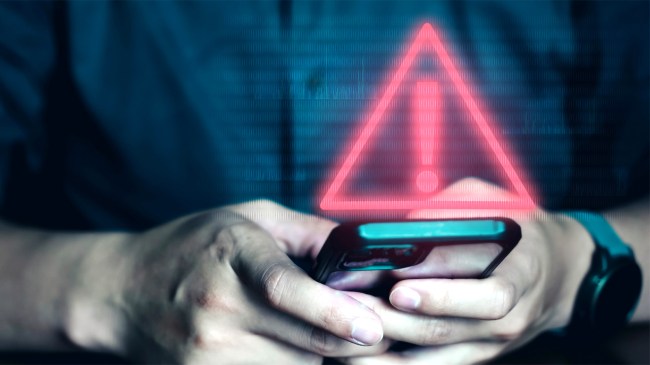iStockphoto
The most extensive study on satellite GPS-based sensing ever reveals smartphones can be hacked and used by companies or intelligence agencies to map your home.
And, in fact, they might already be doing it.
“We show how apps using GPS sensing can covertly capture semi-processed GPS data without consent and utilize it to discern the user’s ambience (99.6%) and activities (87%) across diverse settings, effectively jeopardizing privacy,” the study’s authors wrote in their paper published on the arxiv pre-print server. “At the moment, this vulnerability affects 90% of Android users.”
The researchers also point out that this vulnerability in smartphones is probably already being used by intelligence agencies such as the National Security Agency (NSA).
“This is something an academic group can do. Intelligence agencies, my hunch is that they know it for sure,” said study co-author Smruti Sarangi of the Indian Institute of Technology Delhi. “In the world of security, if something is doable, rest assured someone is doing it.”
Think you’re safe, iPhone users? Think again.
According to New Scientist, “The researchers only tested Android devices but believe that any device that allows an app access to the various GPS metrics would be vulnerable.”
Kevin Curran, Professor of Cyber Security at Ulster University, UK, told New Scientist with regard to the study that the only way to remain secure is not to have a smartphone.
“The fact that semi-processed GPS data can be used to sense the ambient, recognize human activity and figure out floor layouts was hitherto unknown,” the researchers wrote. “We successfully showed that all of the above can be achieved, and that too with a high accuracy that ranges from roughly 99.5% in controlled conditions to 87% in absolutely uncontrolled conditions.
“We conducted an extensive set of experiments with tens of volunteers, many phones of different makes and brands, diverse set of scenarios and thousands of sample points. We collected data for a year across a large geographical area – some of the collection points were 1000 kms away from the place where this research was carried out. We also collected data on flights, cruise ships and high-altitude locations. Our results are thus robust.
“Furthermore, our approach can construct floor maps with a maximum error margin of 4.1m as compared to the ground truth. We can classify points of interest within an indoor layout such as elevators, stairs, corridors, empty corners and rooms with a roughly 90.15% accuracy, while just relying on GPS data. Currently, Android does not address this vulnerability, which leaves approximately 90% of users exposed.”

